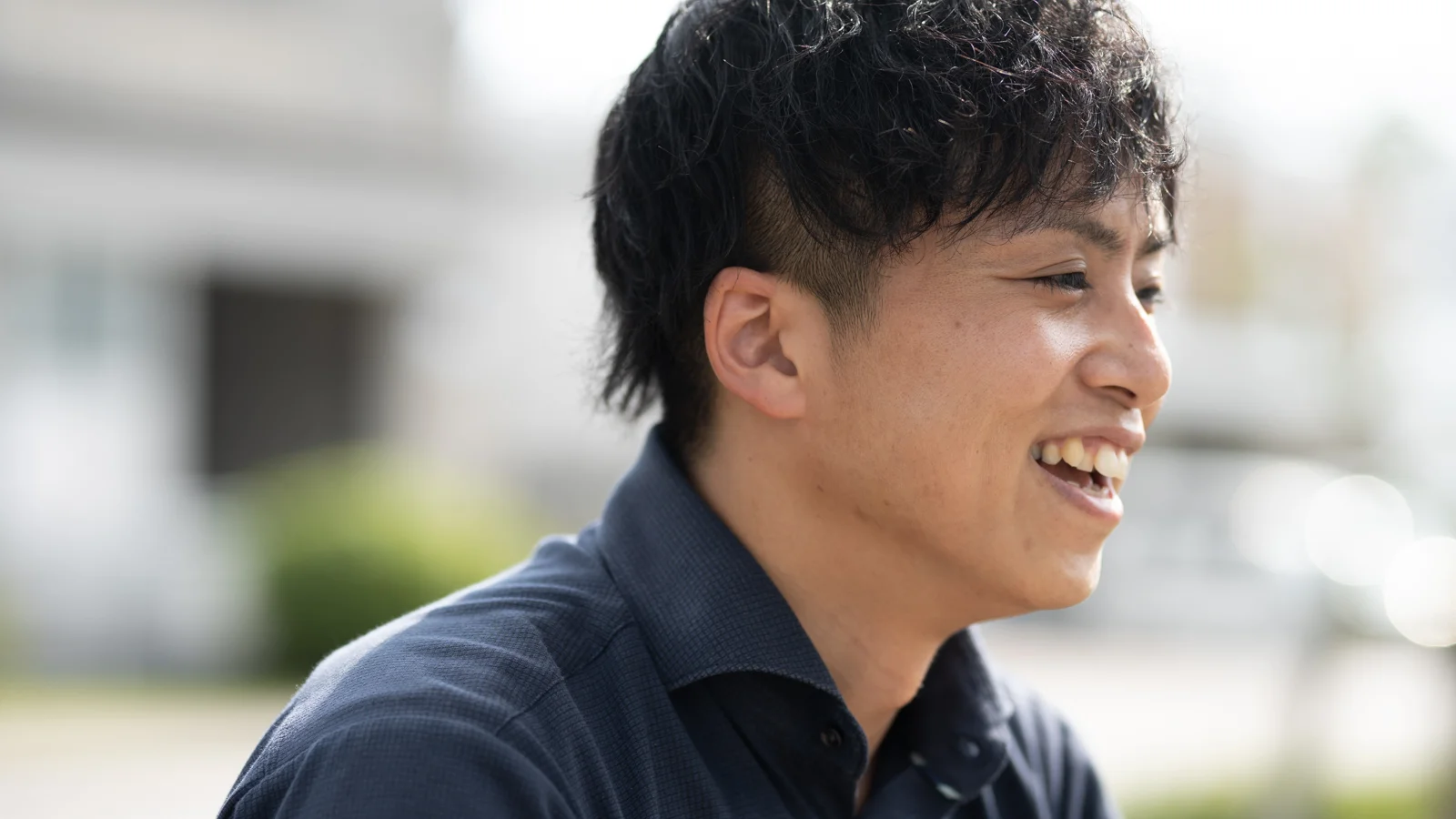

Mar 7, 2022
CAREER & LIFELaying the foundations for mutual respect of diverse values and ideas
Lessons learned through work: cherishing diversity and contributing to the future
-
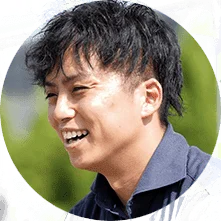
Thermal Systems Manufacturing Div. 2, Nishio PlantSatoshi Fujii
After joining DENSO Corporation in 2010, Satoshi Fujii was assigned to thermal products as a production engineer. He has also been highly active outside of the company including obtaining a human-resources coaching license, participating in a non-profit organization, working for crowd funding and educational projects, and developing a new disaster-prevention business.
With his personal creed of helping to create a world where every living creature is happy, Fujii is involved in diversity-related endeavors. But he wasn’t always this proactive. As a student, Fujii would often stay up all night playing games, and at work he used to be anxious about the gap between his ideals and the reality of his career. Let’s take a look at how he managed to overcome setbacks while continuing to pursue his ideals.
Contents of this article
The importance of diversity: not sufficiently valuing myself or others in the past
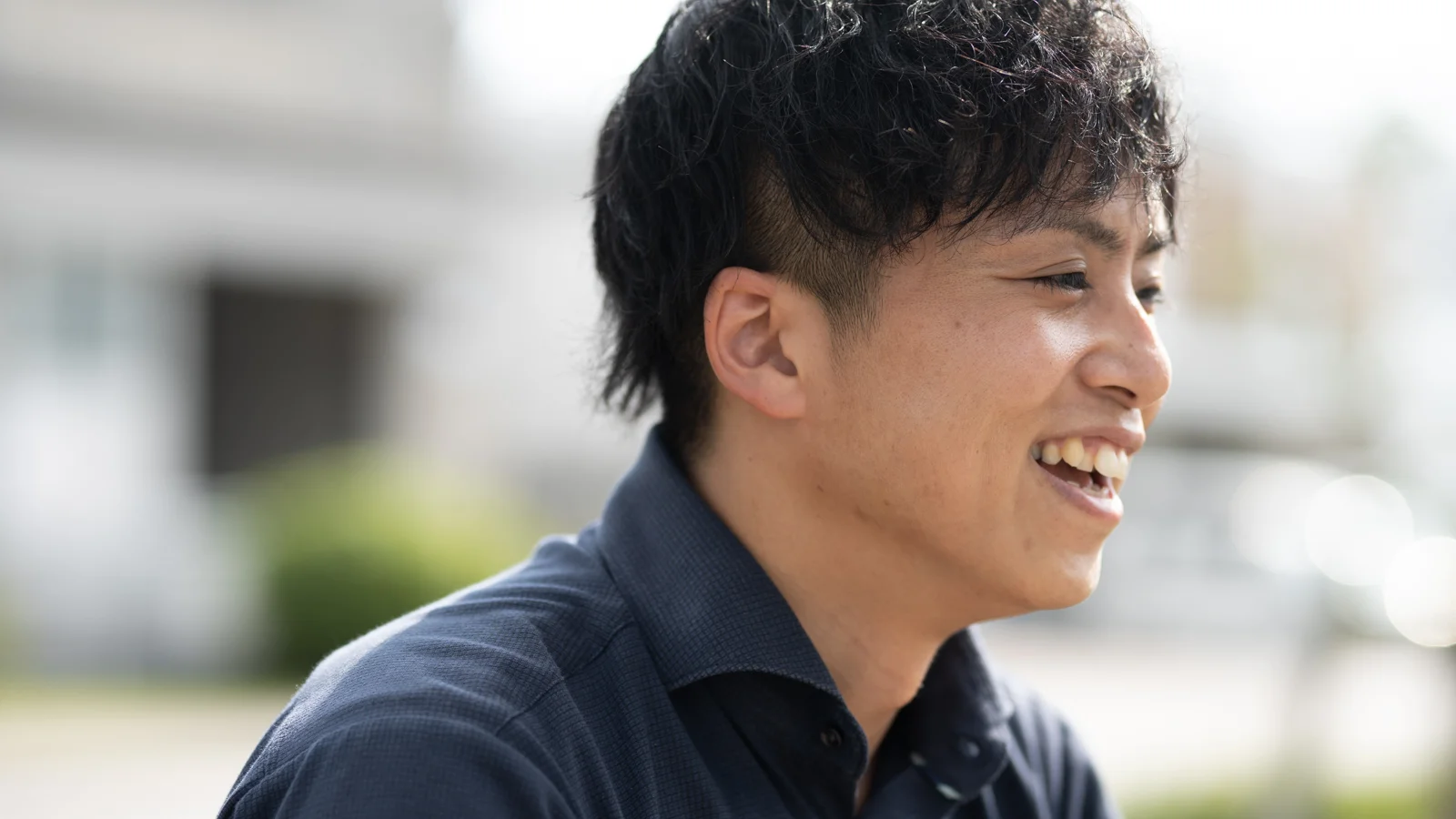
Diversity and inclusion entail mutual recognition among a wide range of people in regard to individual ideas and differences, as well as the pursuit of shared growth. All of the people I meet are different than me, and everyone has their own ideas.
Today, I place great value on diversity, but in the past I could not express my own ideas well and tended to speak in a harsh and dominating tone to prevent dissent and make sure my voice was heard. Back then, I didn’t understand the importance of diversity. However, following a period of leave from work, I began to rebuild and, through that process, came to value diversity much more.
Not a serious enough employee: career-related worries

When I was a kid, my dad would often make big props in order to play games with his friends from work—giant dice made from Styrofoam, for example. I remember everyone having a lot of fun playing with these, and that got me interested in manufacturing products for myself someday.
After finishing junior high school, I went to a technical vocational high school, then transferred into a university program where I studied Stirling engines, quantum mechanics and other such subjects. However, I wasn’t a particularly focused or serious student, and I didn’t take my part-time job very seriously either. Instead, I would often stay up all night with my friends in the classroom playing mah-jongg and video games. Actually, I was a terrible student. [laughs]
After university, I got a job at DENSO, which I chose because it was a manufacturing company involved in a familiar, everyday product: cars. I hoped to make life more convenient for people in some way by working with automobiles. However, since I’d spent most of my university years goofing around with friends, I wasn’t able to suddenly become a serious, dedicated worker.
As a new hire, I wasn’t as motivated as many other employees. Regardless, I was assigned to production engineering at a DENSO plant, and there were plenty of people—both my supervisors and more experienced coworkers—who were kind enough to teach me everything I needed to know. As I gradually got better at my job, I found myself receiving thanks from other workers at the plant, and that made me really happy. This is when I made it a goal to help co-workers enjoy their jobs more, and that in turn motivated me in my own work.
After working at that plant for four years, I was transferred to another plant, where I work now. This exposed me to an entirely new type of workplace culture: production engineers and onsite workers were assigned to separate departments, and each department had their own, separate goals. Of course, everyone worked very hard to achieve their specific goals, but I felt that both sides needed to work together more closely in order to achieve bigger things.
At the time I was unable to effectively express those ideas, and I gradually lost my motivation. And yet I still had a vision of a better workplace for everyone. I wanted everyone to focus not just on their own department, but on making all workers at the site happy so that the company as a whole could benefit. I wanted people to focus more strongly on safety and product quality. And I wanted them to try to satisfy all parties in their work.
In the end, I ended up pushing myself too hard in pursuit of those ideals, which wore me down physically and mentally such that I had to take an extended leave from work.
Epiphany through post-work-leave challenges: separating my own ideas from those of others
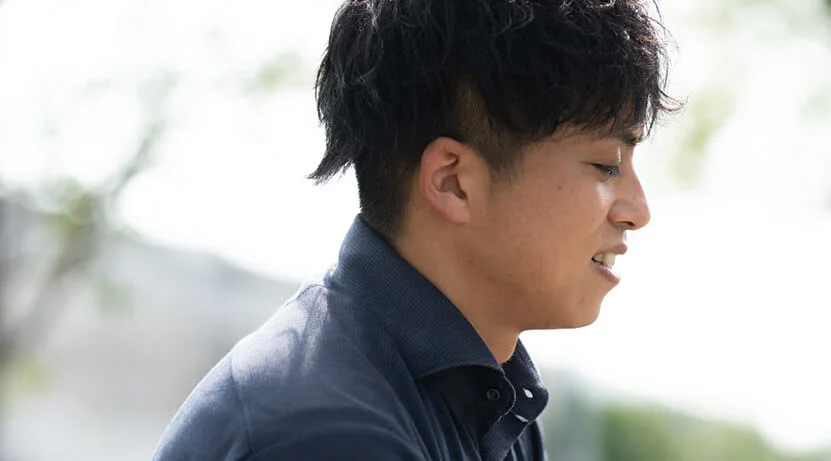
During my leave, my family gave me a lot of support and kept reminding me that things would get better, while my coworkers told me I could take as long as I needed—the job would still be there for me. Thanks to their support, I was able to recover slowly but surely, and after returning to work everyone gave me a warm welcome back. I was so grateful for their kindness at the time, and this motivated me to give back to them somehow. I felt reinvigorated at work.
At the same time, I was suffering from the realization that the gap in thinking between myself and others had led to my previous breakdown. I needed to be more certain of myself, but that made me try too hard to get my own ideas across and so I talked in a harsh and oppressive way to others. I used to say things like “this is how it ought to be” or “this is the only way to do it.”
I was trying too hard to force my ideas on coworkers, and naturally that affected them badly. I hated myself for acting that way, and felt self-loathing during my day-to-day work. That’s when I discovered the concept of “coaching,” which is a type of human resources development. Rather than forcefully imposing one’s ideas on another person, the coaching approach places greater emphasis on respecting the ideas of that person. This approach enabled me to reflect on my own actions while better valuing the ideas of people around me.
I have my own ideas, and other people have theirs. I mean this in a positive sense—I’m me, and you’re you, and that’s a good thing! By constantly keeping this in mind when talking with others, I became able to pursue my own ideals while others recognized my efforts. They started seeing me as someone who would listen to their ideas, and then express those same ideas in my own words.
By establishing the foundations for good communication in this way, I became better able to suggest a certain approach or changes to a certain area, and thus they would agree with me more often. I had found a way to change our workplace culture for the better.
Contributing to the world through diversity and inclusion, and achieving harmony between individualistic traits
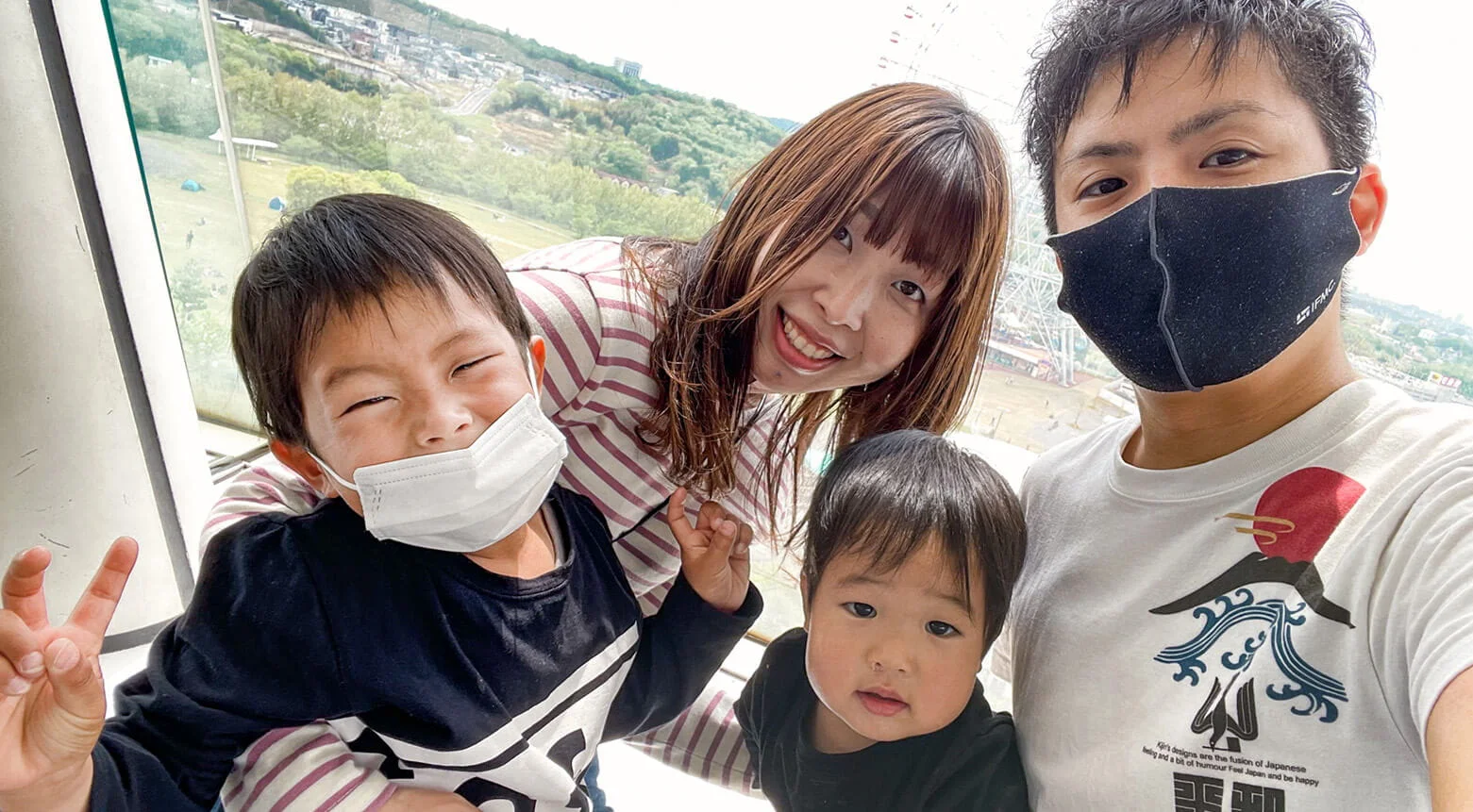
I think there are still people at DENSO who, like the old me, worry about a lot of things on a personal level, are unable to get their ideas off the ground, or underestimate themselves too often. Therefore, in order to share with others my experience of reflecting on and changing myself, while also overcoming barriers and achieving change and growth, I am studying to get an HR coaching license.
Developing greater self-respect while also respecting others can enable people to be themselves during interactions with others, and this often leads to new ideas and collaborations. I want to lay these foundations within the company as a way of thanking others for all that they have done for me.
In addition, my experience of raising a child of my own has made me more interested in education, and I dream of someday launching a primary- and secondary-education project. By teaching children how to recognize each other’s worldviews and value systems, while also getting them to study and try many different things, I aim to foster a mindset focused on diversity and inclusion while helping them to develop their own individuality. After those children grow up, I hope they will work together in a variety of collaborative endeavors. By bringing together differing individualistic traits in this way, I believe it is possible to make Japan and the world a better place for us someday.
I want to equip these children with the skills needed to create that kind of future. Then, they can go on and do the same for their own kids, fostering an even better next generation. Ideally, the goal is to create a chain reaction like this that continues over the next century or two, continually passing on benefits to subsequent generations. Right now, I’m working on laying the foundations for this project.
【Afterword】
After telling me about his experience of overcoming daunting challenges, Mr. Fujii added one last thing: “It’s important to understand that I’m not saying everyone should focus on diversity alone, that we always have to work together as a group toward shared goals—the truth is, some people are happier working alone! We should also respect and accommodate that type of trait in our working styles. I believe that is the true essence of respect for diversity.”
Satoshi Fujii reminds us of the importance of being ourselves and doing things in our own way, while also respecting the diversity of others.
REACTION
Changing your "Can'ts" into "Cans"
Where Knowledge and People Gather.



Leave a comment